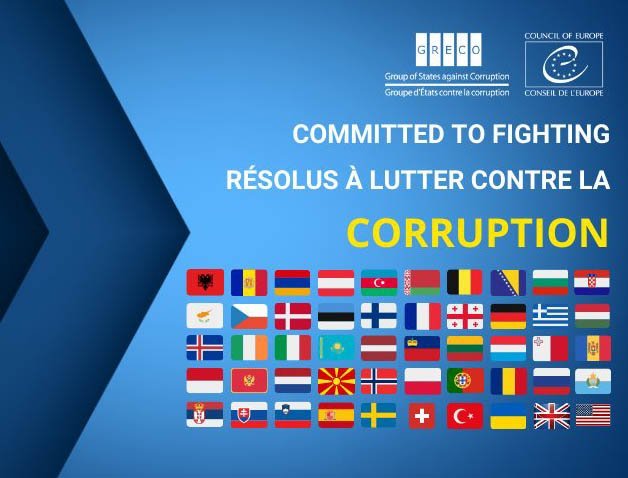The first compliance report following the Republic’s evaluation by Europe’s group of states against corruption (Greco) in October 2023 was presented by head Cyprus’ delegation to Greco Alexia Kalispera to the House institutions committee on Wednesday.
“Of the remaining recommendations, 13 have been partially implemented and three more are to be implemented (…) by December 31, 2026,” she said.
Cyprus was evaluated by Greco for the fifth time in the context of corruption prevention and the promotion of integrity in central governments and law enforcement bodies.
The evaluation included a total of 22 recommendations, 13 of which concerned the central government and the other nine the police.
“Many institutional changes have been made,” Kalispera said, emphasising that the recommendations concerned a set of far-reaching measures.
She added that of the remaining three measures, two were to be implemented with the bill unifying committees concerning civil servant incompatibility issues and seeking related employment after leaving the civil service.
The third recommendation, she said, concerns new disciplinary regulations of the police and procedures were currently underway.
“[Greco president David Meyer] appeared impressed by the respect and seriousness that Cyprus shows for Greco’s recommendations,” Kalispera said.
She added that Cyprus’ move to establish an oversight committee to monitor the implementation of Greco’s recommendations had been widely welcomed and was eventually proposed for adoption in other member states.
The formation of the monitoring committee had been promoted through the initial Greco evaluation report in 2023. In fact, Greco, in its evaluation, criticised the Republic for its numerous committees overseeing corruption, saying they failed to coordinate with one another.
Representing the presidency, Christodoulos Charalambous said Cyprus’ rate of full and partial compliance was 85 per cent, compared to an average of 55 per cent in other evaluated countries.
Charalambous referred to several measures which had been implemented by the government based on the recommendations listed in the evaluation 18 months ago.
These, he said, included a code of ethics, the appointing of former supreme court judge George Arestis as a special ethics adviser to the government, a code of practice issued by the information commissioner, as well as awareness and training programmes on integrity issues.
Representing the justice ministry, Nikolas Anastasiou referred to the recommendation for disciplinary regulations, which is part of the three remaining measures suggested in the evaluation.
“The amendment of the regulations is before the justice ministry. The two that were fully implemented concern the adoption of the integrity and corruption prevention policy and the strengthening of protection of informants,” he said.
Deputy head of police Marios Agiotis told the committee that the remaining recommendation was on track to ensure “the speedy adjudication of the disciplinary proceedings of the police officers.”
Concerning the demanded transparency in the context of promotions within the police department, he added that an amending regulation would be submitted to the ministry by the police’s legal department.
He added that by the end of the 2026 deadline, the police would have complied with all Greco recommendations.
In terms of transparency, Kalispera explained that Greco’s recommendation could not be fully put into practice because it went against a crucial part of the Constitution and an important right of the president, adding that Greco had been made aware of this.
Charalambous added that Greco was satisfied with the president’s justification for his choice of Themistos Arnaoutis as the new chief of police in 2024.
Police trade unionist Nikos Loizides acknowledged the issue with the Constitution and suggested that an adjustment could be requested to ensure that appointments were not made outside police ranks.
He added that in the initial evaluation, 50 per cent of corruption reports concerned the police, stressing that “significant steps” had since been made. Loizides suggested the introduction of a time limit, to ensure that disciplinary investigations “do not perpetuate”.
Loizides said there were currently 800 open disciplinary cases, corresponding to one fifth of police officers, which had been open since 2017.
“We want discipline in the police but also transparency,” he said.
Loizides himself in the past faced four disciplinary investigations over statements he made against the police force in his capacity as trade union leader – head of Isotita – which were eventually suspended following a decision by police chief Themistos Arnaoutis in December 2024.






Click here to change your cookie preferences